Fritextsökning
Artiklar per år
Innehållstyper
-
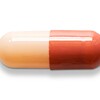
Magmedicinen som blev 90-talets största blockbuster
Redan 1979 syntetiserades omeprazolmolekylen. Men det kom att dröja många år innan dåvarande Astra hade ett godkänt läkemedel. När det väl skedde fanns en tablett som kom att hjälpa miljontals människor i världen – och slå alla försäljningsrekord.
-

Topplista innovationer: Hon uppfann Sveriges vanligaste hjälpmedel
Sveriges mest förskrivna hjälpmedel blev till när Aina Wifalk var på besök på ett bibliotek och såg den bokvagn som bibliotekarierna använde för att transportera böcker. Rullatorn återfinns på Life Science Swedens lista över de viktigaste svenska medicinska innovationerna på plats ...
-
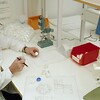
Topplista innovationer: Turbuhalern tar läkemedlen till luftvägarna
Efter 100-tals försök kunde Kjell Wetterlin och hans medarbetare på Draco ge sin uppfinning en unik egenskap som kom att göra den till en av de största succéerna inom svensk medicinsk innovation – till gagn för miljontals patienter. Turbohalern återfinns på Life Science Swedens lista över de viktigaste svenska medicinska innovationerna på plats ...
-

Topplista innovationer: Ögonbehandling blev fjäder i hatten för Pharmacia
Från komplicerad och ibland riskabel operation till rutinåtgärd. Pharmacias injektionsvätska Healon blev omvälvande för ögonkirurgin.
-

Topplista innovationer: Svenska forskare bakom livräddande läkemedel till för tidigt födda
Läkemedelsjätten sa nej till Tore Curstedt och Bengt Robertson – idag har det svenska läkemedlet räddat för tidigt födda barn över hela världen. Curosurf är en av innovationerna som kvalar in på Life Science Swedens topplista över de 20 viktigaste nutida uppfinningarna. Curosurf finns på plats...
-
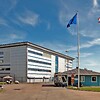
Topplista innovationer: Skarpsinnig forskningschef bäddade för svensk-amerikansk framgång
Svenska Kabi var inte riktigt som andra läkemedelsbolag. Det hade sitt ursprung i bryggerinäringen, var biologiskt inriktat och delägdes av staten. Genom en djärv och tidig satsning på genteknik lyckades bolaget i slutet av 1980-talet få fram en verklig succé: tillväxthormonet Genotropin.
-

Neanderthal genes and Nobel Prize in a popular lecture at Bioscience
An inherited gene variant from our ”evolutionary cousins” – the extinct Neanderthals – may affect how our bodies break down certain drugs. “It’s only a matter of time before we actively start screening for it,” said KI researcher Hugo Zeberg when
-

"Are we doing business the wrong way around in the Life Science Sector?"
For the past 50 years we have created solutions for problems that we thought would solve the problems. Pharmaceuticals have created big block buster drugs which were great for that time but now we realise that these drugs were in fact only tested in white men and certainly not for patients who are older who are taking a number of medications.
-
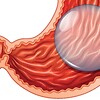
Alert from the Swedish Medicines Agency: Many complications with gastric balloons
According to the Swedish Medicines Agency, an increasing number of serious complications are being reported in procedures with gastric balloons as a method for weight loss. The authority fears significant shortcomings in the information to patients both before and after the procedure.
-

“We need to build flexible operating theatres”
Flexible operating theatres, micro-sensors on surgeons to monitor their well-being and 3D images projected onto organs to be operated on. These are a few ideas that three specialist surgeons are suggesting for the operating theatre of the future.
-
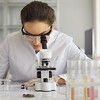
De är mest attraktiva som arbetsgivare inom life science
Vilka arbetsgivare föredrar unga i karriären? Undersökningen Young Professionals Attraction Index listar för åttonde året i rad 100 företag som lockar unga och i år har flera life science-företag letat sig in för första gången.
-
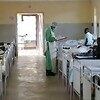
Ebolautbrott i Uganda har tagit 29 människors liv
Ebolautbrottet i Uganda växer. Hittills har 63 smittats och viruset har spritt sig till fem regioner. Läkare utan gränser säger att läget är bekymmersamt.
-

Promising Alzheimer’s study data sends Bioarctic stock soaring
The drug candidate lecanemab from Swedish company Bioarctic significantly slowed down the deterioration in patients with early on-set Alzheimer’s, according to preliminary results from a phase III study.
-

Biosimilars bring price pressure, but are they sufficiently used?
When biosimilars were introduced just over 16 years ago, hopes were raised that they would give many more patients access to effective but otherwise extremely expensive treatments with biological drugs. So, how well has Swedish healthcare used biosimilars? The answer partly depends on whom you ask.
-

Bromsade tidig Alzheimers i studie – Bioarctics aktie rusar
Läkemedelskandidaten lecanemab från svenska Bioarctic bromsade signifikant försämringen hos patienter med tidig Alzheimers sjukdom, enligt preliminära resultat från en fas III-studie. Beskedet fick aktien att rusa på onsdagsförmiddagen.
-

Bought a tablet factory – and built his own empire
In 1995, Thomas Eldered was CEO of one of Pharmacia’s factories in the Stockholm area when the Swedish pharmaceutical giant, after a takeover, decided to move its production abroad. 34-year-old Thomas was facing an imminent risk of losing his job. However, instead, it actually turned out to be the starting point for one of the biggest success stories in Swedish life science.
-

Marie Gårdmark: Potential step change – EU regulators get to play with data
A new pilot from EMA is starting in September to assess wether the analysis of 'raw data' by regulatory authorities improves the evaluation of marketing approval for new medicines. Marie Grådmark writes in a column that she is looking forward to the outcome of the pilot to hopefully then understand if “in house” analyses actually will add value.
-

Genes from Neanderthals can affect the correct drug dosage
A fifth of all Europeans carry gene variants inherited from Neanderthals, which cause certain drugs to break down more slowly. This may have implications for the drug doses they should take.
-

Lucy Robertshaw: Did you know Stockholm wants to be in top 5 in the world for Life Sciences?
Karolinska Institutet Solna Campus has certainly become the next “Kendall Square”, writes Lucy Robertshaw in a column.
-

Newly discovered gene variant linked to protection against abdominal obesity
American researchers believe they have identified a rare gene mutation that protects against abdominal obesity and metabolic syndrome. The ambition is that the discovery will lead to new treatments that can help reduce the risk of type 2 diabetes and coronary artery disease.
-

BioVentureHub CEO: “Companies with a high degree of interaction achieve greater success”
For the first time since its inception, AstraZeneca’s BioVentureHub can now recruit new companies, as some of its tenants have grown significantly and are leaving the hub. This is the message from the biohub’s CEO Magnus Björsne in an interview, in which he also highlights a study that points out that companies with a high degree of interaction with other companies achieve greater success.
-

Biotechbolag får vite för felaktigt pressmeddelande
Ett köpeavtal beskrevs som ett samarbetsavtal i ett pressmeddelande från biotechföretaget Selectimmune. Nu åläggs företaget att betala vite på 60 000 kronor för att ha brutit mot marknadsplatsen Spotlights regler om informationsgivning till marknaden.
-

Study: Our behaviour may have been guided by wishful thinking during the pandemic
A new study suggests that we systematically underestimate health risks if and when it suits us. This was especially true during the pandemic, as our risk assessments may have been guided by wishful thinking rather than a rational perception of the risks.
-

Ojämställt i toppen hos Uppsalas life science-företag
STUNS Life science i Uppsala har undersökt hur jämställdhet mellan man och kvinna ser ut i regionens life science-företag. Och trots att Sverige hör till ett av världens mest jämställda länder, är den kvinnliga representationen låg på ledningsposter i Uppsala.